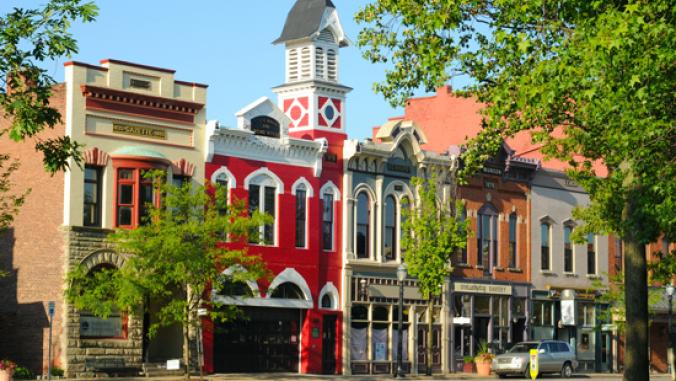Facebook Ends Greenpeace Campaign with Major Green Commitments
<p>The longest-running feud in green IT has come to an end as the social network embraces renewable energy for its data centers, coming to terms with the environmental group's demands.</p>

The longest-running feud in green IT has come to an end as the social network embraces renewable energy for its data centers, coming to terms with the environmental group's demands.
There's a certain bittersweet feeling when a long, public feud comes to an end; Tom Cruise vs. Brooke Shields, Conan O'Brien vs. NBC, Eminem vs. everyone, and so on.
But there's less of a downside to the news today that Facebook and Greenpeace have reached an agreement on green data centers, effectively ending the longest-running feud in green IT.
The dispute has been ongoing for more than two years, since Greenpeace first targeted the uber-powerful IT giant for relying on coal-fired power for its new data centers.
The campaign, which at times reached ridiculous heights, urged Facebook to adopt a five-step plan for green data centers, including use of and advocating for clean energy, more environmentally conscious siting of facilities, and more public and industry outreach on green IT issues.
While the campaign was, officially, met largely by silence from Facebook (though the company did also launch stage after stage of green IT commitments and projects), the details of today's agreement make it pretty clear that Greenpeace won.
According to a joint release this morning, the points Facebook commits to focus on include:
- Adopting a siting policy that states a preference for access to clean and renewable energy supply
- Ongoing research into energy efficiency and the open sharing of that technology through the Open Compute Project
- Ongoing research into clean energy solutions for our future data centers
- Engaging in a dialogue with our utility providers about increasing the supply of clean energy that power Facebook data centers
"Greenpeace and Facebook will now work together to encourage major energy producers to move away from coal and instead invest in renewable energy. This move sets an example for the industry to follow," Tzeporah Berman, Co-director of Greenpeace's International Climate and Energy Program, said in a statement. "This shift to clean, safe energy choices will help fight global warming and ensure a stronger economy and healthier communities."
For its part, Greenpeace is committed to:
- Active support for the Open Compute Project, including encouraging companies to join the effort, use the technology, and share their efficiency technology
- Encouraging utility providers to offer ways for customers to get their utility data, including by joining the partnership with Opower, Facebook, and NRDC
- Recognize company leadership in advancing best practices in efficiency or sustainability technology through the open source sharing of design and technology advances.
And together, the groups will work together to "develop and promote experiences on Facebook" to help individuals and organizations save energy, co-host roundtables on energy issues, and work with large energy users across industries to help "address the energy choice they are facing and develop new clean energy rather than recommission coal plants or build new coal plants."
"Facebook looks forward to a day when our primary energy sources are clean and renewable, and we are working with Greenpeace and others to help bring that day closer," Marcy Scott Lynn of Facebook's sustainability program said in a statement. "As an important step, our data center siting policy now states a preference for access to clean and renewable energy. Another important step will be to work with Greenpeace to put the power of our platform to use for the environment. Greenpeace has been particularly effective using Facebook to spark environmental awareness and action, we are excited to work with them to explore new ways in which people can use Facebook to engage and connect on the range of energy issues that matter most to them – from their own energy efficiency to access to cleaner sources of energy."
Although we'll miss seeing what the next stage in Greenpeace's campaign might have been, this is a resolution that promises big benefits for green IT and the environment.





